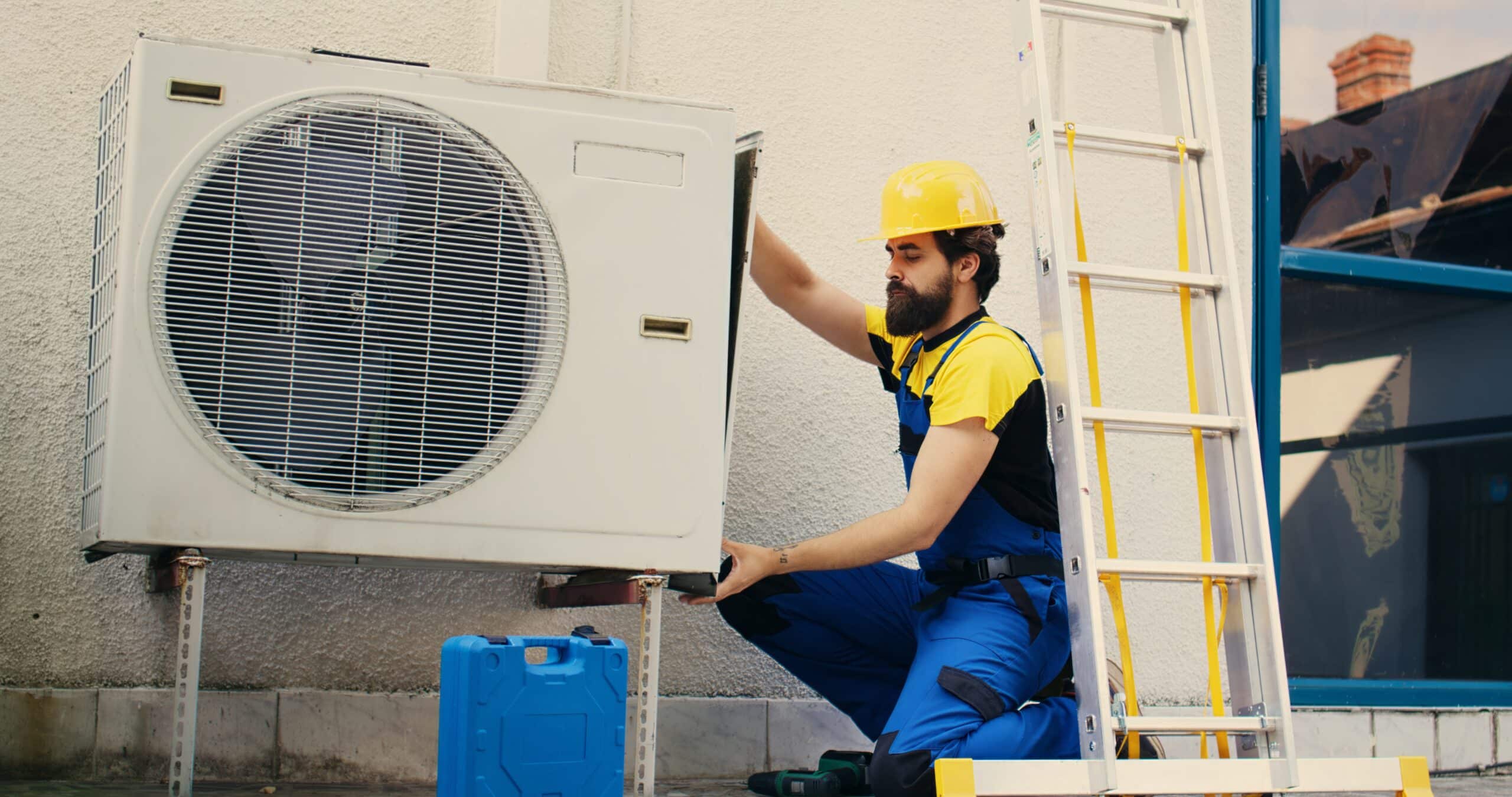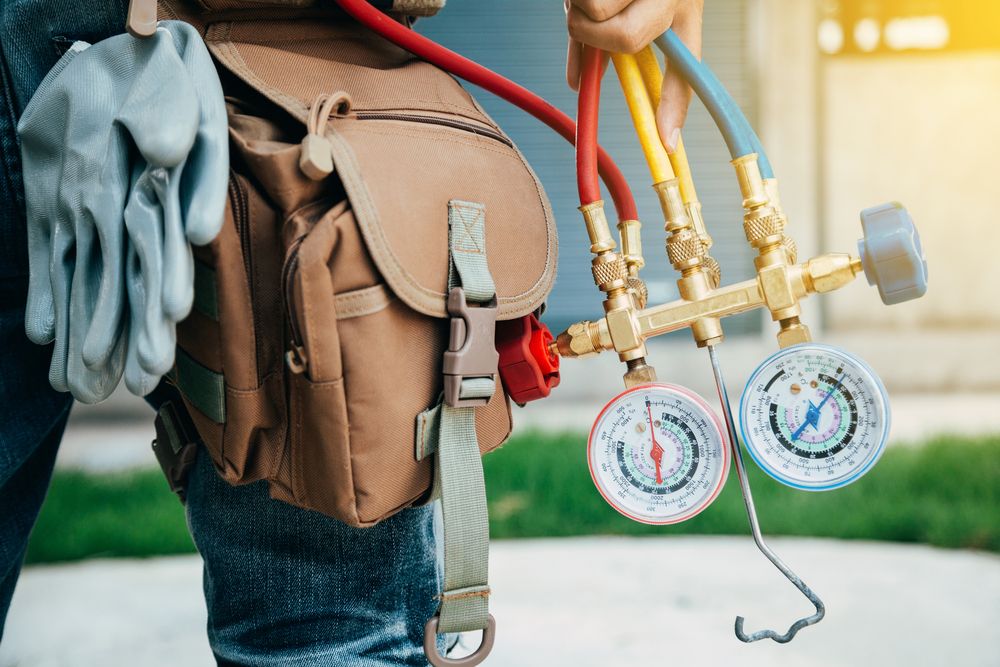Comfortable Living Made Seamless with Solutions from DMAKS HVAC.
How to Pick the Right Heating And Cooling System for Your Requirements
Selecting the appropriate heating and cooling system is a vital decision that needs cautious consideration of different elements. Begin by assessing your home's size, layout, and unique requirements, as these components determine the essential ability and configuration of the system. In addition, developing a budget plan that encompasses installment and lasting functional costs is important. As you consider your choices, understanding power effectiveness ratings and the implications of your neighborhood climate will certainly play a considerable role in your selection. The myriad of system kinds available can complicate this procedure, leading one to wonder which course ultimately leads to ideal comfort and effectiveness.
Examine Your Home Size
Analyzing your home size is a critical initial step in selecting the suitable cooling and heating system. The size of your home directly affects the heating & cooling capacity required for efficient environment control. A heating and cooling system that is also tiny will struggle to maintain comfortable temperatures, causing raised power consumption and endure the unit. On the other hand, a large system can lead to brief biking, poor moisture control, and ineffective procedure.
To accurately analyze your home dimension, determine the square video footage of each space, thinking about aspects such as ceiling elevation and the design. Additionally, consider the insulation quality and the variety of home windows, as these components impact thermal performance. Residences with open layout may require various system arrangements contrasted to those with lots of split spaces.
Making Use Of the Handbook J load estimation approach can provide a more specific quote of your cooling and heating needs. This method make up different factors, including regional environment, solar gain, and occupancy patterns. By carefully reviewing these elements, you can ensure that your picked heating and cooling system is appropriately sized, bring about improved convenience, power efficiency, and durability of the equipment.
Determine Your Spending Plan
Determining your budget plan is a pivotal action in the heating and cooling system option process, as it establishes the parameters for your choices - DMAKS HVAC. An a/c system is a considerable investment, and understanding your economic limits will aid limit selections that fit within your means
Begin by analyzing not only the preliminary acquisition price yet also setup prices, which can vary dramatically depending on the complexity of the task. Take into consideration continuous expenditures such as maintenance, repair work, and energy usage. A system might show up inexpensive originally but can cause greater prices over time if it is less efficient.
It is recommended to designate a backup fund for unexpected expenses that may occur during setup or preliminary system changes (DMAKS HVAC). Additionally, explore funding options or refunds that might be readily available, as these can reduce the worry of upfront expenses
Inevitably, having a clear spending plan allows you to engage with HVAC specialists better, ensuring you obtain tailored recommendations that aligns with your economic goals and home needs. By being thorough concerning your budget, you can make internet enlightened decisions that boost comfort without endangering monetary security.
Evaluate Energy Performance
Power performance plays an important function in the overall performance and cost-effectiveness of your Cooling and heating system. Look for systems with a high Seasonal Energy Efficiency Ratio (SEER) for cooling down and a high Yearly Gas Utilization Performance (AFUE) ranking for home heating.
Furthermore, take into consideration the Energy Star accreditation, which symbolizes that the system satisfies rigorous efficiency guidelines established by the Environmental Protection Agency. Investing in an Energy Star-rated a/c system can result in substantial financial savings with time, especially in areas with extreme temperature variations.
One more element to evaluate is the system's dimension and capacity. An extra-large or undersized unit can result in inadequacy and enhanced power prices. DMAKS HVAC. Appropriate sizing, frequently established through a Hand-operated J tons estimation, ensures that the system runs at optimum effectiveness


Take Into Consideration Environment and Environment
When choosing a cooling and heating system, it is crucial to consider the local climate and ecological conditions, as these aspects significantly influence the system's performance and effectiveness. Various areas experience differing temperature level extremes, humidity levels, and seasonal modifications, every one of which impact heating and cooling down needs.

Additionally, regional environmental elements, such as air quality and possible allergens, Our site ought to notify your option. Equipments outfitted with advanced purification innovations can assist alleviate pollutants and offer cleaner air. Additionally, take into consideration the power resources offered in your location-- some heating and cooling systems are much more reliable when powered by natural gas or renewable power sources.
Inevitably, aligning your heating and cooling system option with your local climate and environmental considerations will certainly lead to improved comfort, improved effectiveness, and lower power costs.
Explore System Types and Functions
As homeowners seek to enhance comfort and performance, discovering the various kinds of heating and cooling systems and their special attributes comes to be necessary. The main kinds of HVAC systems consist of central air conditioning, heatpump, ductless mini-split systems, and furnaces. Each system uses unique benefits tailored to various needs and preferences.
Air conditioning systems provide consistent air conditioning throughout a home, making them optimal for bigger areas. Heatpump function as both heating and cooling services, making use of electrical power to transfer heat, which can result in lower power expenses. Ductless mini-split systems are coming to be increasingly popular because of their flexibility and simplicity of setup, permitting property owners to regulate the temperature level in specific areas without considerable ductwork.

Conclusion
Finally, choosing the suitable heating and cooling system demands cautious consideration of different factors, including home dimension, budget constraints, energy effectiveness, regional climate, and offered system types. A complete evaluation of these components ensures optimum comfort and cost-effectiveness. By complying with a structured technique, house owners can make educated decisions that straighten with their specific demands and choices, eventually causing enhanced interior air top quality and power savings.